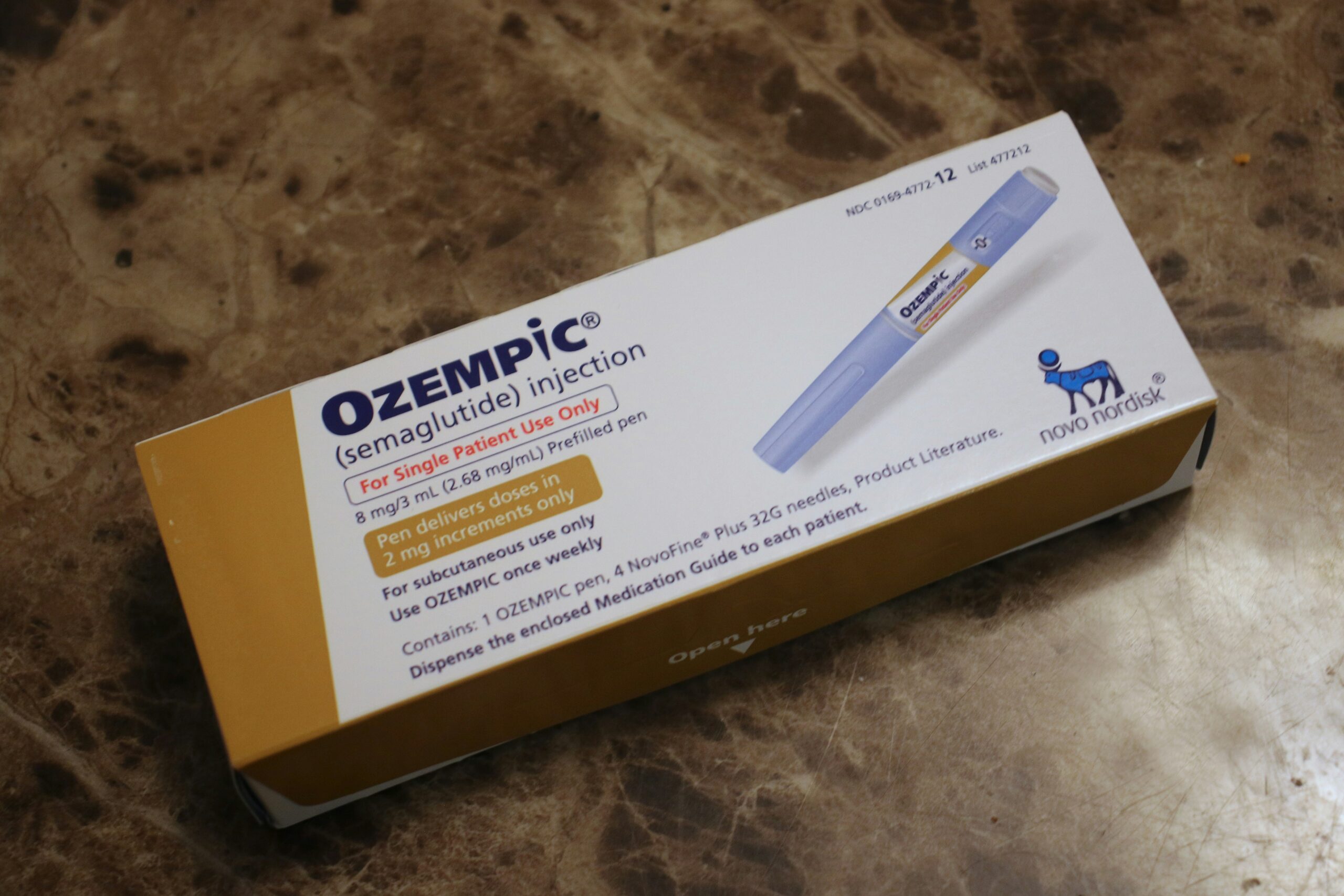GLP-1 receptor agonists like semaglutide and tirzepatide have transformed the conversation around obesity treatment. Effective though they may be, they raise the same fundamental question that plagues other weight loss approaches — how do you keep the weight off for good?
Behavioral nutrition counseling is emerging as a solution to this age-old problem, combining the medical framework of dietetics with evidence-based psychotherapeutic techniques. Here, we’ll examine how this approach can close the gap between short-term results and lasting success in patients using GLP-1s.
Why GLP-1s work (and where they fall short)
For doctors and patients alike, GLP-1 receptor agonists have been a revolutionary addition to the treatment landscape: Whereas lifestyle change and bariatric surgery were once the mainstays of obesity treatment, weight loss injections now offer a way to reliably reduce body fat without the need for invasive procedures. These medications work on both the gut and brain, targeting the hormones that regulate the body’s hunger and satiety signals while slowing digestion so patients feel fuller longer.
It’s the psychological effects of the drug, however, that are often most profound. Whereas constant “food noise” may be a primary driver of overeating, GLP-1 drugs dampen these thoughts and cravings so that they can eat when hungry, stop when full, and move through the day without being preoccupied by food. This is because the drugs act on brain receptors involved in impulse control, reward, and addiction, reducing the dopamine-driven reward response that often fuels overeating.
Certainly, GLP-1s promote substantial weight loss, particularly in the early stages of treatment. However, they are not a permanent solution: the drug tends to lose effectiveness over time, and the cost — often up to $1000 per month — makes it unrealistic for most people to continue indefinitely. Thus, patients and providers must consider how to maintain results when the meds are discontinued and food noise returns: without implementing healthy lifestyle habits, relapse is a very real possibility.
What the data says about long-term outcomes for GLP-1 patients
Although GLP-1s are highly effective in the short-term, data suggests that patients often face the same types of issues they might with other weight loss approaches — over time, old habits return and much of the weight is regained.
With GLP-1s, this typically coincides with discontinuation of the drug. In one large cohort study (n=125,474), nearly half of those with Type 2 diabetes and nearly two-thirds without diabetes discontinued GLP-1 treatment within the first year, often citing financial concerns and adverse effects.
Many reinitiated treatment after weight regain, a trend which has been consistently observed in other clinical studies. A 2022 study (n=327), for example, found that patients regained roughly two-thirds of their lost weight within one year of stopping semaglutide, and experienced a reversal of cardiometabolic improvements. These findings underscore the need for evidence-based treatment approaches that focus on the lifestyle factors that underpin successful weight control.
The role of behavioral nutrition counseling in GLP-1 treatment
Behavioral nutrition counseling is a novel approach to dietetics that addresses the mental and emotional aspects of eating behaviors alongside the more traditional tenets of nutrition. It’s gaining traction as a way for patients using GLP-1s to build and maintain healthy lifestyle habits before, during, and after medication treatment.
Practitioners are registered dietitians who have undergone extensive training in the principles of behavior change. They may use techniques from cognitive behavioral therapy, motivational interviewing, and mindfulness-based therapies, integrating these methods with traditional nutrition guidance for a balanced, holistic treatment plan.
Habit formation
Behavioral dietitians focus on helping patients adopt new ways of thinking and eating with the goal of creating healthy habits. For example, they may help them learn to plan and prepare healthy meals at home, build sustainable exercise routines, and find healthy alternatives for undesirable behaviors. With consistent effort, these positive health behaviors can become second nature, and pairing this approach with GLP-1 treatment can amplify results and reduce relapse risk.
Coping skills
For many people, food is a coping mechanism. While GLP-1s may be an effective way to dull the dopamine response that fuels emotional eating, it’s imperative for patients to learn healthy coping skills so they’re prepared to transition off the drug. Behavioral dietitians help patients identify triggering emotions and situations so they can better understand their relationship with food, then equip them with new coping strategies such as cognitive reframing, structured problem-solving, and mindfulness techniques.
Nutrition guidance
Behavioral dietitians play an important role in helping patients on GLP-1s meet their nutrition goals during and after medication treatment. They may educate the patient on meal timing, nutrient balance, and portion control, and help them plan protein-rich, gut-healthy meals so that they feel satisfied and satiated. They might also help patients plan healthier alternatives for calorie-rich foods so that they can indulge their cravings without compromising their goals.
Accountability
Accountability is another key component of the behavioral nutrition model. Because behavior change takes considerable time and effort, regular check-ins with a provider are crucial. Behavioral dietitians make goal-setting, strategy planning, and troubleshooting a central feature of each session so that patients can feel supported as they work towards their goals. They may also assign “homework” (e.g. habit trackers, progress journals, or meal planning templates) to help patients stay engaged in the habit formation process.
Transition plans
Most patients do not stay on weight loss drugs indefinitely, making it crucial to plan for the eventual discontinuation of medication treatment. Behavioral dietitians can be pivotal in ensuring patients are equipped with the knowledge, skills, and habits needed to maintain progress even when food noise returns. They can help patients prepare for the psychological and physiological shifts that come with tapering off medication, offering practical, evidence-based strategies for managing appetite and sustaining healthy routines.
Examining the effectiveness of lifestyle programs for weight loss
While traditional diets often fail, research supports the effectiveness of lifestyle-based weight loss programs.
The Look AHEAD (Action for Health in Diabetes) study is one of the most comprehensive evaluations of this approach: With over 5,000 participants, it found that intensive lifestyle interventions (i.e. structured support for dietary change, physical activity, and behavioral strategies) were effective in helping patients achieve and maintain clinically significant weight loss (≥5%) over an extended period. Such interventions included structured support for dietary change, physical activity, and behavioral strategies.
These treatment approaches often produce results that go well beyond weight loss — patients often see improvements in metabolic and cardiovascular health, gut microbiome balance, inflammatory markers, sleep quality, mental health, and quality of life. For patients on GLP-1s, such gains can validate their efforts and reinforce self-efficacy by showing that real, lasting change is possible even without medication.
Closing the gap in GLP-1 treatment with behavioral nutrition
For providers overseeing patients using GLP-1s, integrating behavioral nutrition into the treatment plan is key to success. It’s crucial to educate patients on the realities of weight loss drugs: While meds can kickstart progress, long-term weight management hinges on sustainable, everyday habits. Referrals to trained behavioral dietitians can help ensure patients and providers alike have peace of mind when it comes to starting or stopping GLP-1s.
Online behavioral nutrition services like Everlong offer patients access to registered dietitians trained to provide the kind of evidence-based lifestyle counseling that can usher them through and beyond medication treatment. And because 95% of insured patients pay $0 out-of-pocket, providers can confidently refer patients knowing that cost won’t be a barrier to care.
Takeaway
Effective though they may be, GLP-1s are not a long-term solution for most patients seeking weight loss support. Behavioral nutrition support is an effective way to ensure patients meet their nutritional needs and goals while on the meds, and — more importantly — build lifelong habits that support weight maintenance and overall health. To get started, read more about how Everlong works, or refer your patient to a trained behavioral dietitian.



